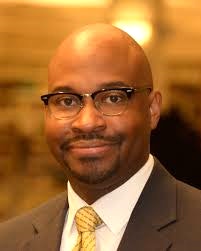Several years ago, when my political science colleagues and I were revising our curriculum, I made the argument that we needed to add to our required courses a class that focused on women and politics. Philander Smith College mission is centered on social justice, so it made sense that in our program we would focus on communities that are often overlooked or understudied in the academy. Therefore we adopted this course along with Black politics and African politics as part of our core curriculum.
Returning back to the college several years later, I was surprised that the class had not been offered and so I decided to teach it. Moreover, I decided to add a frame to the class and focus the course on “Black” women and politics. I had some trepidation about teaching this class as a Black man in fear that I may not do it justice. I reached out to several colleagues about my reservations, and one good friend put it in a way I had not thought of, when he said: “who else is more qualified to talk about your mother, grandmother and sister than you?”
Although I have a pretty good grounding in Black feminism and Black political thought of Black women, I also understood the power dynamic and essentially my “man gap.” However, I was still uncomfortable with leaning on my understanding, so I reached out to my Black female colleagues to get a sense of how they taught the class and what sources and approaches they used. They sent me their syllabi and recommended several authors to consult when building the class. After pouring through dozens of readings and reviewing their courses, I had an idea of how I was going to approach the class.
 Dr. Joseph L. Jones
Dr. Joseph L. JonesI decided to teach the class using singer Solange’s album “A Seat a the Table” as a framework by using each song as a weekly theme and grounding it in scholarship written by Black female scholars. This album artistically captures the experiences of Black women and Black communities in a contemporary way. We used Solange as a muse to approach various issues and themes involving Black women and politics. The song “Mad” allowed us to interrogate sexual violence and Black women in the criminal justice system. Body politics was aligned with “Don’t Touch My Hair”. We explored topics such as Black feminism, African women diaspora, popular culture and the political economy of Black women by listening to “Weary”; “Where Do We Go, Junie” and “Scales” respectively.
The world of politics gave us plenty of cases to incorporate in the class, too. The Brett Kavanaugh hearings provided evidence that not much has changed since the Anita Hill hearings. President Trump’s consistent attacks on Black women elected officials and reporters provided an example of the politics of recognition. Bill Cosby’s conviction also brought up lively debates around consent, respectability politics and rape culture. The candidacies of Stacey Abrams, Ayanna Pressly and Lauren Underwood allowed the class to imagine how Black women could be a changing force for progressive politics in the Democratic Party.
For the ladies in the class, they were able to translate their experiences into a language to explain their feelings. Dr. Melissa Harris Perry’s “Crooked Room” theory helped them reframe their lives and affirm how jaded the world seems to them from a Black woman perspective. Dr. Johnnetta B. Cole and Dr. Beverly Guy-Sheftall chapter “Collisions: Black Liberation vs. Women Liberation” in their book Gender Talks explained their struggle with wholeheartedly embracing Black nationalism. They learned that self-care is a political act from the book Black Women’s Mental Health by editors Drs. Stephanie Evans, Kanika Bell and Nsenga Burton. They reimagined Black women as Black political thinkers, as Dr. Brittany Cooper writes in her book Beyond Respectability, and equally valuing their contributions to male peers.
For the guys in the class, it was challenging. After a few classes, it became clear to me that they had never considered issues like privilege, consent or sexual assault in a political way. To help them understand the power dynamic and privilege men have in relationship to Black women, I told them that they were the “White men” and if they understood and could critique White supremacy then patriarchy is its twin brother, and you cannot denounce one system without condemning the other. Therefore, as Toni Morrison has said, White supremacy is a disease that ultimately White people have to confront to end it; so is the case with men and systems of patriarchy.
Some lessons I learned coming from the class is that we do not talk about gender enough in academic spaces. After watching my students coil and revive through the various themes in the class, it is clear that institutions of higher education ought to have mandatory courses on gender politics. Just like racism, there is a profound ignorance that exists among men and women about patriarchy. More importantly, l learned that as Black men we have to be more intentional about talking about gender and the privilege that we have in relationship to Black women.
As a result of this class, my students committed to a service learning project to host a Black Women and Girls day at our state capitol next year. We are working with one of our new Black woman elected official Representative Jamie Scott to get this off the ground. One of my students named Klaudette Spencer will be heading to Washington D.C. to serve as an intern in Senator Kamala Harris’ office next semester. This class should be a good grounding for her as she goes to work for one of the hardest working public officials who advocate on behalf of Black women on a national level.
Dr. Joseph L. Jones is special assistant to the president and associate professor of political science at Philander Smith College. You can follow him on Twitter @drjosephljones.


















